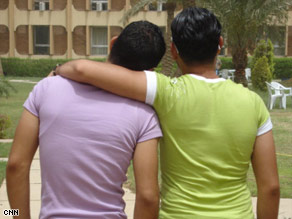As far as I know, it was Cranmer's 16th century
Book of Common Prayer which first framed the marriage vows to include this:
With this ring I thee wed,
with my body I thee worship,
with all my worldly goods I thee endow.
Aside from his beautiful language, I am no fan of the old Prot. But this language is starkly beautiful, really quite extraordinary, simple, direct, poetic, stunning.
"With my body I thee worship."
His Grace would not be happy with my reflections today.
Worship comes in many forms. In my Catholic background, the catechism taught three distinct kinds: latreia, dulia and hyperdulia. Latreia is the worship owed only to the Trinitarian God: the Father, the incarnate Christ, the Holy Spirit; to give it to any creature was idolatry. Dulia is reverence and honor, given to saints, God's special creations of grace. Hyperdulia is the strong reverence and honor given to the Virgin Mary, the most completely
deified creature.
I am sure that Cranmer, of all people, was not asking his marrying couples to worship each other idolatrously, but that he was so frank about the sacred physicality of marriage balances some of his other theological obsessions for me.
In Catholic theology, too, the marriage sacrament is incomplete until the couple have intercourse. Without that sexual act to fulfill what took place before the altar, annulment is possible. People do not often make the connection: one of the seven sacraments instituted by Christ requires sexual intercourse. If I can make a limping analogy with the Eucharist. The consecration of the bread and wine by the priest at the Mass makes the Eucharist real. But only when it is eaten and drunk by the congregation is it really complete, achieving its purpose. With marriage, however, the bond created by the marriage partners in the vow rite
requires that they physically enact it in sexual intercourse.
I am by nature a religious man. Not pious, really. And certainly not spiritual. But the world is full of God to me, sometimes full of gods. And in the meeting of two bodies, with carnal knowledge, I can feel that call to worship.
We have different religions. In the sexual realm, my religion is not The Woman but The Man. And as my symphonic capacities grow richer with age and I am able, quite naturally, to inhabit realms of sheer sensuality and epiphanic soulfulness at the same time, I am aware of the worshipful dimension of sex with my own kind for me. Like all worship, it is mixed with ego and desire. And for this worshipper, even when I feel the draw most powerfully, I know by instinct that it is not merely the human in my arms who draws me, but something soul-stirring in him that is larger than he is, vast and ancient, enveloping and untamed, within which we both "live and move and have our being."
And like divine worship, what appears to be humble reverence, the exaltation of the other at the expense of the self, is in fact the most dignifying and ennobling of actions. To offer reverence and honor and awe to another is not to humilate the self, but to humble it, to let it know the truth of its value, its wonderful value.
Certainly not all sex has this religious dimension. Regardless of the genders of the participants, it can be empty, or worse. And this worshipful experience between people who will not be partners for life, though real, remains, in a sense, unconsummated by intention and time. With the "wedding" of souls through the body, so much more is actualized and possiblie. But the divine spark is there, if welcomed.
The experience is there.My Catholic soul knows without question that overwhelming sensual experience and worshipful contact with the Divine is not only possible but the most natural of things. Looking back on my life, I realize that when I was a child, I saw more unveiled male flesh in the art of the local parish church than I saw in all the rest of my young life put together. Whether it be through a solemn High Mass or the contending of man with man in a private sanctuary of desire and affection...worship, awe, gratitude, power, timestopping bliss, peace, the sinking of souls one into the other.
I know that the Great Church does not have the ways and means to sanction this or let itself understand it. And my comparison is, on the surface, blasphemous for many. Not my intention. I am no iconoclast and have no agenda, at least today. Today I simply say what I have experienced. I have some sense of what those beautiful old words mean:
"With my body I thee worship."
_________________




















